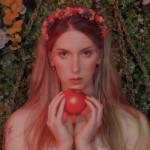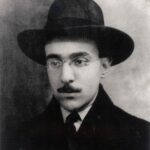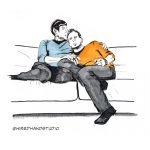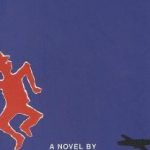A media scholar explains autofiction and looks at how it is embodied in Natalie Wynn’s ContraPoints videos. Continue reading

May 30, 2024
by Aesthetics for Birds
0 comments


May 30, 2024
by Aesthetics for Birds
0 comments
A media scholar explains autofiction and looks at how it is embodied in Natalie Wynn’s ContraPoints videos. Continue reading

March 14, 2024
by Aesthetics for Birds
0 comments
Pessoa writes that “Countless lives inhabit us.” But what does that mean? Philosopher Jonardon Ganeri discusses. Continue reading

September 22, 2023
by Aesthetics for Birds
1 Comment
A philosopher tackles difficult themes in the JD Salinger short story “A Perfect Day for Bananafish” Continue reading

February 3, 2023
by Aesthetics for Birds
4 Comments
Scholars John Gibson, Magdalena Ostas, and Hannah Kim discuss how art creates meaning, and how we play a role in that meaning-making. Continue reading

October 13, 2022
by Aesthetics for Birds
0 comments
Philosopher Sally Haslanger reflects on life through a poem by Wislawa Szymborska Continue reading

February 11, 2022
by Aesthetics for Birds
0 comments
In making art, we make ourselves into something beyond what our original authors may have intended. Continue reading

June 17, 2021
by Aesthetics for Birds
0 comments
Five supershort flash fictions by philosopher Ben Roth Continue reading

March 16, 2021
by Aesthetics for Birds
0 comments
Philosopher Mark Schroeder writes 100 words on Joseph Heller’s Catch 22 Continue reading

October 14, 2020
by Aesthetics for Birds
2 Comments
Influential writer and literary critic James Wood is interviewed by Becca Rothfeld Continue reading
March 19, 2020
by Aesthetics for Birds
0 comments
What follows is a guest post by Patrick Fessenbecker. In a recent column in The New York Times, Ross Douthat contends that English professors aren’t having the right kind of arguments. Reflecting on the analysis of the decline of the humanities in a series of essays in the Chronicle of Higher Education over the last year, Douthat makes a familiar diagnosis: the problem is that we literature professors no longer believe in the real value of the objects we study. Engaging Simon During’s account of the decline of the humanities as a “second secularization” in particular, Douthat argues that secular attempts to defend the humanities will fail just as surely as secular attempts to defend religious ethics and norms did: it doesn’t work unless you really believe in the thing. Correspondingly, the debates literary scholars are having about how to expand the range of texts and subjects we teach are … Continue reading